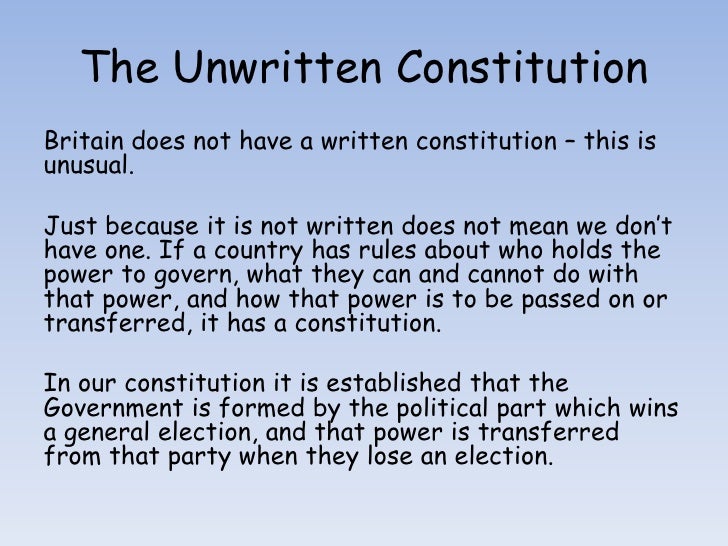Britain doesn t have a written constitution

Britain doesn’t have a written constitution.


When it comes to constitutions, many countries around the world have a written document that outlines the fundamental principles and laws of their nation. However, Britain stands out from the crowd as it does not have a written constitution. This fact may surprise many, as constitutions are seen as foundational documents guiding the governance and legal systems of a nation. So, what exactly does it mean for Britain to not have a written constitution?
In the absence of a written constitution, the United Kingdom relies on an uncodified constitution. An uncodified constitution means that the fundamental principles and laws are not enshrined in a single document. Instead, the constitution is made up of various sources, including statutes, common law, and conventions.
Statutes, or acts of Parliament, play a significant role in shaping the constitution of the United Kingdom. These statutes range from landmark laws such as the Magna Carta and the Act of Union to more recent legislation, including the Human Rights Act 1998. Statutes provide a legal framework within which the country operates, and they can be altered or repealed by Parliament.
Another essential element of the British constitution is common law, which consists of legal principles derived from court decisions over the centuries. Judges’ interpretation and application of these principles contribute to the overall legal framework of the country. Common law has the flexibility to adapt to changing societal needs and values.
Conventions form an integral part of the British constitution as well. Conventions are unwritten rules and practices that have evolved over time and are considered binding. They include practices such as the monarch giving royal assent to legislation passed by Parliament or the Prime Minister’s role in appointing ministers. Conventions provide stability and ensure the smooth functioning of the government.
The absence of a written constitution in Britain offers certain advantages. One significant advantage is flexibility. Since the constitution is not contained in a single document, it can be amended and interpreted more easily in response to societal changes and political developments. This flexibility allows the constitution to remain relevant and adaptable.
On the other hand, the lack of a written constitution can also pose challenges. Without a clear and concise set of principles and laws, there may be a lack of clarity and certainty. The constitution’s interpretation and application could be subject to differing views and debates, leading to potential confusion or conflicting legal opinions.
It should be noted that the absence of a written constitution does not imply a complete absence of legal protections or fundamental rights for British citizens. The United Kingdom is a signatory to various international conventions and treaties, including the European Convention on Human Rights. These agreements provide for the protection of basic human rights and are enforceable in UK courts.
In conclusion, Britain distinguishes itself from many other countries by not having a written constitution. Instead, its constitution is uncodified, relying on statutes, common law, and conventions established over time. This unique approach offers flexibility but also presents challenges in terms of clarity and certainty. Nonetheless, the absence of a written constitution does not imply a lack of legal protections or fundamental rights for British citizens.
Sources:
Tags
Share
Related Posts
Quick Links
Legal Stuff

